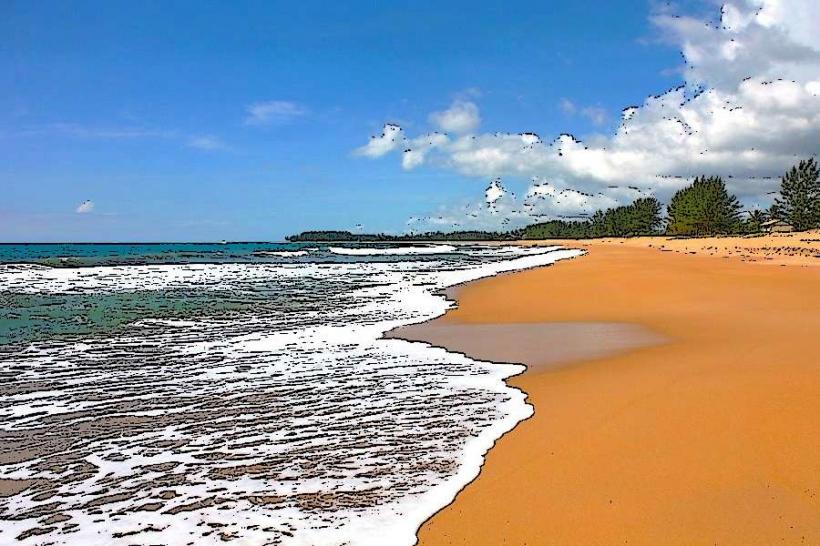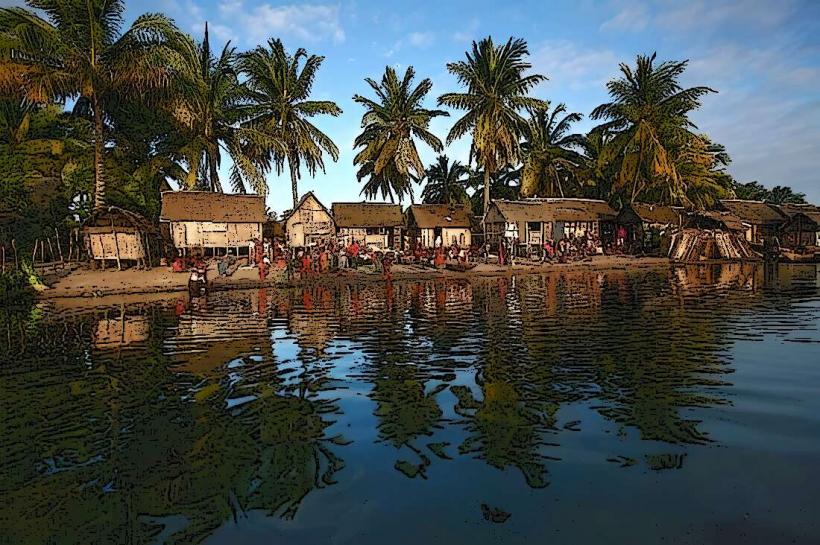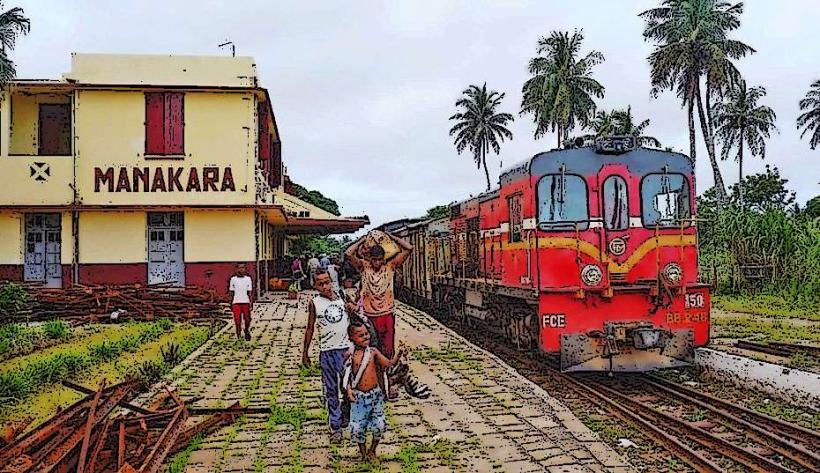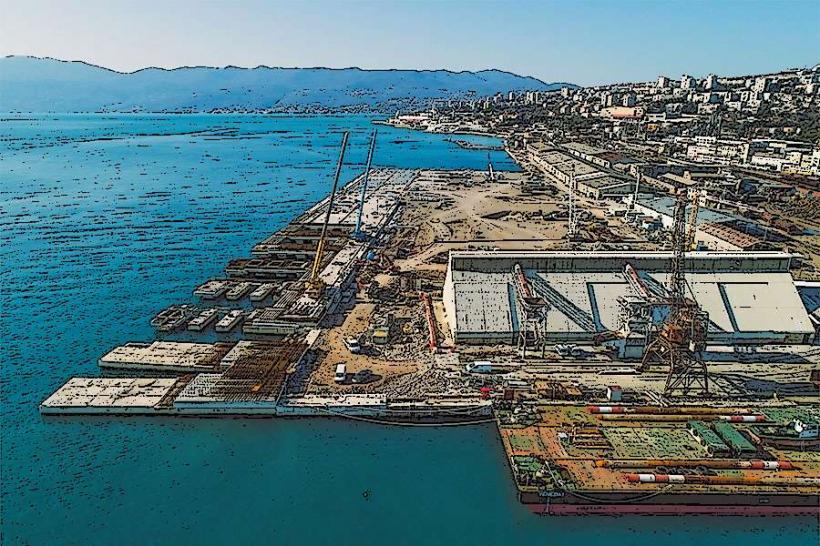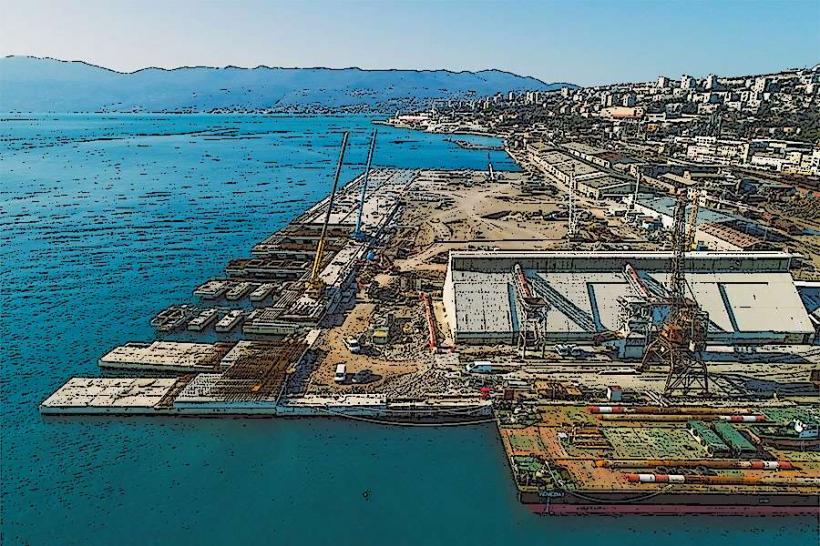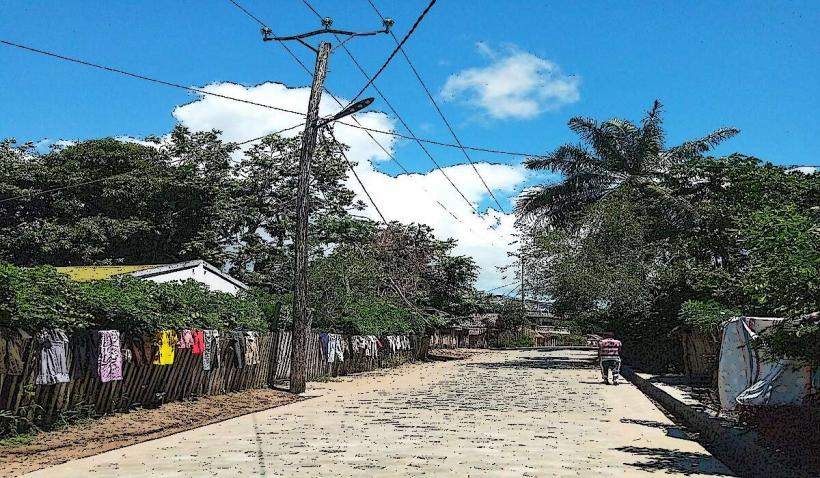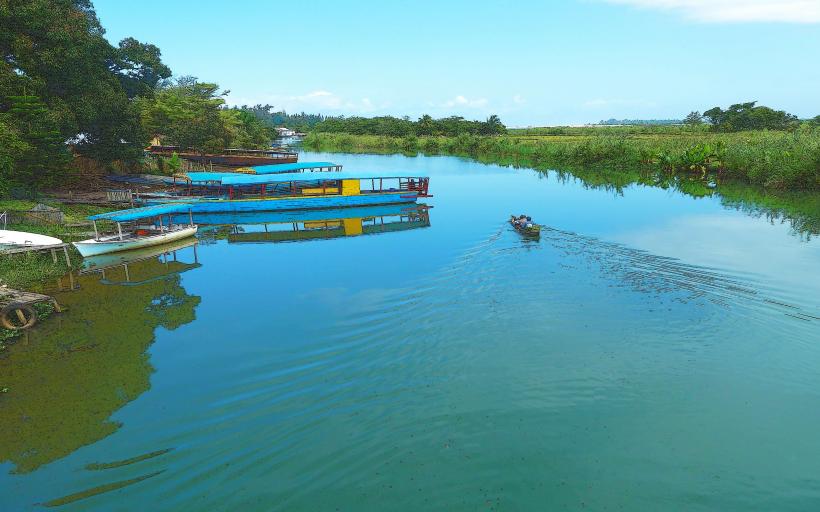Information
Landmark: Manakara Forest ReserveCity: Manakara
Country: Madagascar
Continent: Africa
Manakara Forest Reserve, Manakara, Madagascar, Africa
The Manakara Forest Reserve is a protected area of lowland rainforest located in southeastern Madagascar, adjacent to the city of Manakara.
It serves as a critical habitat for endemic flora and fauna within the region.
Visual Characteristics
The reserve is characterized by dense, multi-layered lowland rainforest. The canopy typically reaches heights of 20-30 meters, composed of various hardwood species, palms, and emergent trees. The understory is thick with ferns, lianas, and epiphytic plants, contributing to a predominantly deep green visual palette. Streams and small rivers traverse the terrain, often with clear or tannin-stained water.
Location & Access Logistics
The Manakara Forest Reserve is situated approximately 8-12 kilometers west of the Manakara city center. Access is primarily via a partially paved and then gravel road that branches off National Route 12 (RN12) heading inland. There is no formal parking lot; vehicles typically park informally near the designated entrance point. Public transport from Manakara includes local taxi-brousses or private taxis, which can be hired for direct transport to the reserve entrance.
Historical & Ecological Origin
The Manakara Forest Reserve was established for the conservation of Madagascar's unique eastern lowland rainforest ecosystem. Its ecological origin is rooted in the island's ancient geological separation, leading to the evolution of highly endemic species. The reserve protects a fragment of this biodiversity, which includes specific plant communities and animal populations adapted to the humid tropical climate.
Key Highlights & Activities
Guided hiking tours are available, typically lasting 2-4 hours, focusing on forest trails. Birdwatching is a primary activity, with opportunities to observe endemic species such as the Brown Mesite. Wildlife spotting includes various lemur species, chameleons, and other reptiles. Specific trails lead to viewpoints offering panoramas of the forest canopy.
Infrastructure & Amenities
Infrastructure within the Manakara Forest Reserve is minimal. There are no formal restrooms or designated picnic areas. Natural shade is abundant due to the dense tree cover. Cell phone signal (4G/5G) can be intermittent or absent within deeper sections of the reserve. There are no food vendors or shops directly at the reserve entrance; visitors should bring their own provisions.
Best Time to Visit
The best time to visit is during the dry season, from April to November, when rainfall is lower and forest trails are less muddy. Mornings, between 07:00 and 10:00, are optimal for wildlife observation and photography due to cooler temperatures and active animals. Avoid the peak rainy season from December to March, which can bring heavy downpours and make access difficult.
Facts & Legends
Local Malagasy communities hold traditional beliefs regarding the forest, often considering certain areas sacred or inhabited by ancestral spirits. It is customary to respect these beliefs by not disturbing specific trees or rock formations. The reserve is a known habitat for the rare Aye-aye (Daubentonia madagascariensis), though sightings are extremely uncommon due to its nocturnal and elusive nature.
Nearby Landmarks
- Manakara Beach: 5km East
- Pangalanes Canal: 6km East
- Manakara Lighthouse: 7km East
- Manakara Train Station: 9km East

